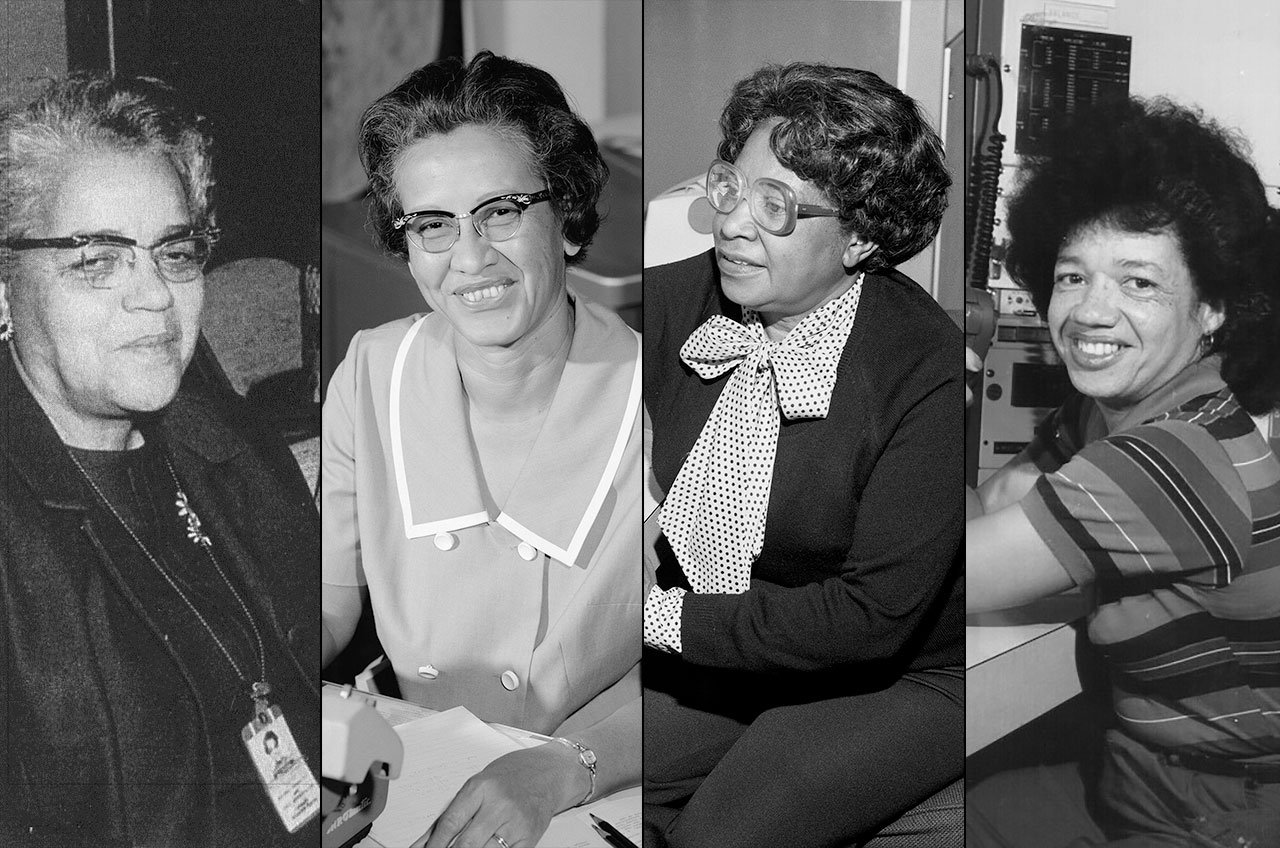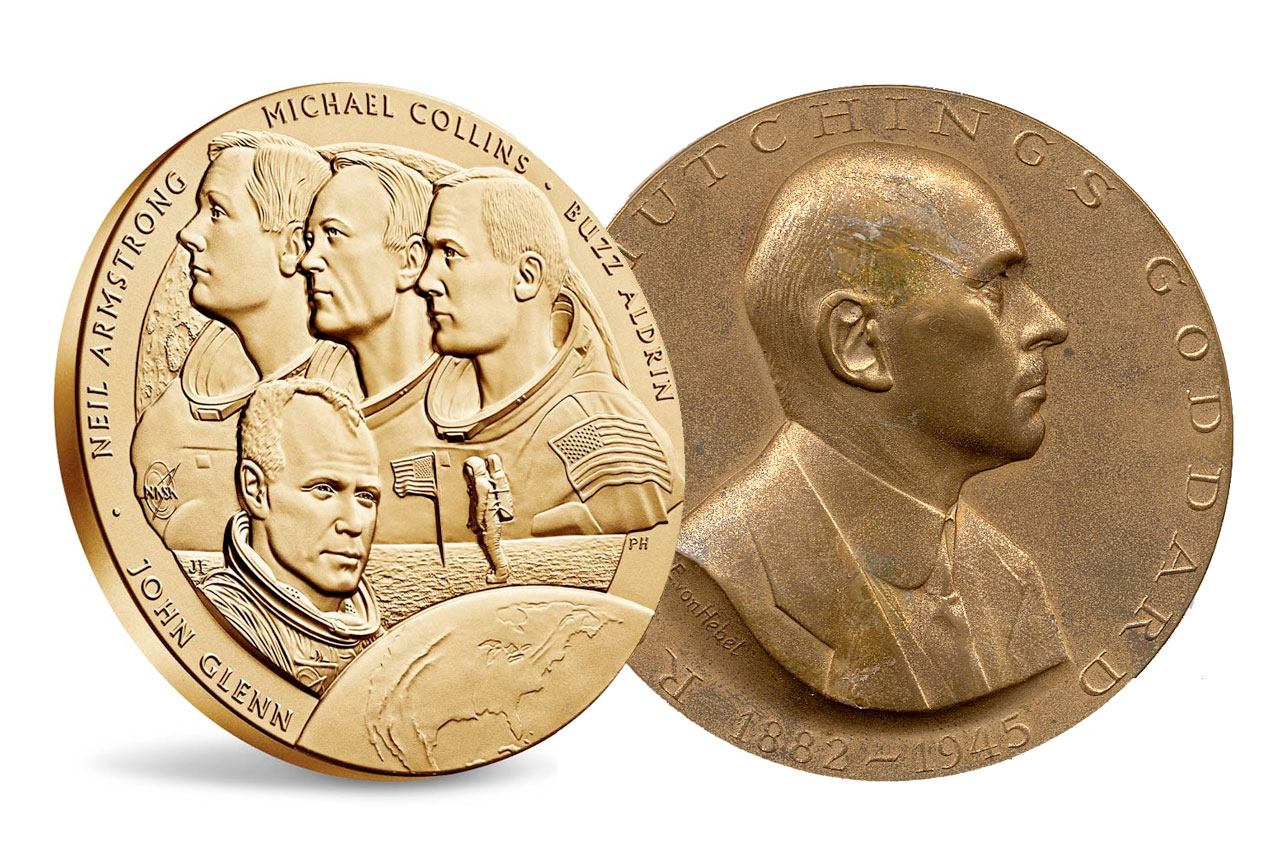NASA's 'Hidden Figures' Put Forward for Congressional Gold Medal

U.S. lawmakers have plotted a trajectory towards bestowing the nation's highest civilian award to four of NASA's "Hidden Figures" — African American women whose roles as human "computers" helped to open outer space to astronauts in the early 1960s.
Senators Chris Coons (D-Del.), Lisa Murkowski (R-Alaska) and Kamala Harris (D-Calif.), along with 44 of their colleagues, have introduced a bipartisan bill to award the Congressional Gold Medal to Katherine Johnson, Dorothy Vaughan, Mary Jackson and Christine Darden. The "Hidden Figures Congressional Gold Medal Act" (S.3321) aims to recognize the four women for their contributions to NASA's success during the early years of human space exploration and "highlight their broader impact on society; paving the way for women, especially women of color, in science, technology, engineering and mathematics."
"Each of these women played an important role at NASA during the space race, but for many years their accomplishments remained hidden," said Coons in a statement. "This bill will help recognize these extraordinary women and bring their accomplishments into the light so they can serve as an inspiration to younger generations of women in science, particularly those of color." [How 'Hidden Figures' Came Together: Interview with Author Margot Shetterly]
Johnson calculated trajectories for NASA's early human spaceflights, including the suborbital launch of the first American astronaut, Alan Shepard on his 1961 Mercury mission, and the first flight of a U.S. astronaut into Earth orbit, John Glenn on his 1962 Friendship 7 mission. Working with NASA's Space Task Group, Johnson became the first woman in the agency's flight research division to receive credit as an author of a research report.
Vaughan led the West Area Computing unit at what is now the Langley Research Center in Virginia, becoming the first African American supervisor at the National Advisory Committee for Aeronautics (NACA), the predecessor agency to NASA. She later became a leading computer programmer as a part of the space agency's analysis and computation division. Vaughan died in 2008 at the age of 98.
Jackson was the first African American woman engineer at NASA. Later in her career, she worked to improve the prospects of NASA's female mathematicians, engineers and scientists as Langley's Federal Women's Program manager. She died in 2005 at the age of 83.
Darden, who became an engineer at NASA 16 years after Jackson, wrote over 50 articles on aeronautics design and was the first African American of any gender to be promoted into the Senior Executive Service at Langley.
Get the Space.com Newsletter
Breaking space news, the latest updates on rocket launches, skywatching events and more!
The Hidden Figures Congressional Gold Medal Act directs that Vaughan's medal, bestowed posthumously, be given to the Smithsonian Institution for display and Jackson's posthumous honor be given to her family. Johnson is 99 today; Darden is 75.
The lives and careers of Johnson, Vaughan, Jackson and Darden were chronicled in "Hidden Figures: The American Dream and the Untold Story of the Black Women Mathematicians Who Helped Win the Space Race," authored by Margot Lee Shetterly. That book was adapted for the 2016 feature film "Hidden Figures."
"Nothing could be more gratifying than to see these women — quiet heroes from my hometown — recognized for their service to our country," said Shetterly. "With their commitment to progress through science and an unyielding belief in equality, Dorothy Vaughan, Mary Jackson, Katherine Johnson and Dr. Christine Darden are role models to us all." [On 'Hidden Figures' Set, NASA's Early Years Take Center Stage]
The Congressional Gold Medal is awarded to individuals whose achievements have had an impact on U.S. history that is likely to be recognized in the recipient's field for years to come. First bestowed to George Washington in 1776, only five individuals involved in space exploration have been awarded to date: early rocket pioneer Robert H. Goddard in 1959 and astronauts Glenn, Neil Armstrong, Buzz Aldrin and Michael Collins in 2011.

For the Hidden Figures Congressional Gold Medal Act to move forward and be considered by the Senate Banking, Housing and Urban Affairs Committee, an additional 20 co-sponsors are needed (for a total of at least 67). If the bill achieves the needed support and is passed by the Senate, similar legislation must also be cosponsored by at least two-thirds (290) of the House of Representatives for it to pass into law.
"I'm encouraged to be joined by so many colleagues as we introduce the Hidden Figures Congressional Gold Medal Act," said Murkowski. "These impressive women overcame significant hurdles to attain their educational and professional goals, and they continue to serve as important role models today."
"These women were barrier breakers, and their immeasurable contributions to NASA and our nation have cemented their place in history," said Harris. "I'm proud to help recognize their achievements as they continue to serve as a beacon for black women both young and old, across the country."
The Hidden Figures Congressional Gold Medal Act has also been endorsed by a number of private and non-profit organizations, including the Girl Scouts, the American Institute of Aeronautics and Astronautics and the American Geophysical Union.
Follow collectSPACE.com on Facebook and on Twitter at @collectSPACE. Copyright 2018 collectSPACE.com. All rights reserved.
Join our Space Forums to keep talking space on the latest missions, night sky and more! And if you have a news tip, correction or comment, let us know at: community@space.com.

Robert Pearlman is a space historian, journalist and the founder and editor of collectSPACE.com, a daily news publication and community devoted to space history with a particular focus on how and where space exploration intersects with pop culture. Pearlman is also a contributing writer for Space.com and co-author of "Space Stations: The Art, Science, and Reality of Working in Space” published by Smithsonian Books in 2018.In 2009, he was inducted into the U.S. Space Camp Hall of Fame in Huntsville, Alabama. In 2021, he was honored by the American Astronautical Society with the Ordway Award for Sustained Excellence in Spaceflight History. In 2023, the National Space Club Florida Committee recognized Pearlman with the Kolcum News and Communications Award for excellence in telling the space story along the Space Coast and throughout the world.










